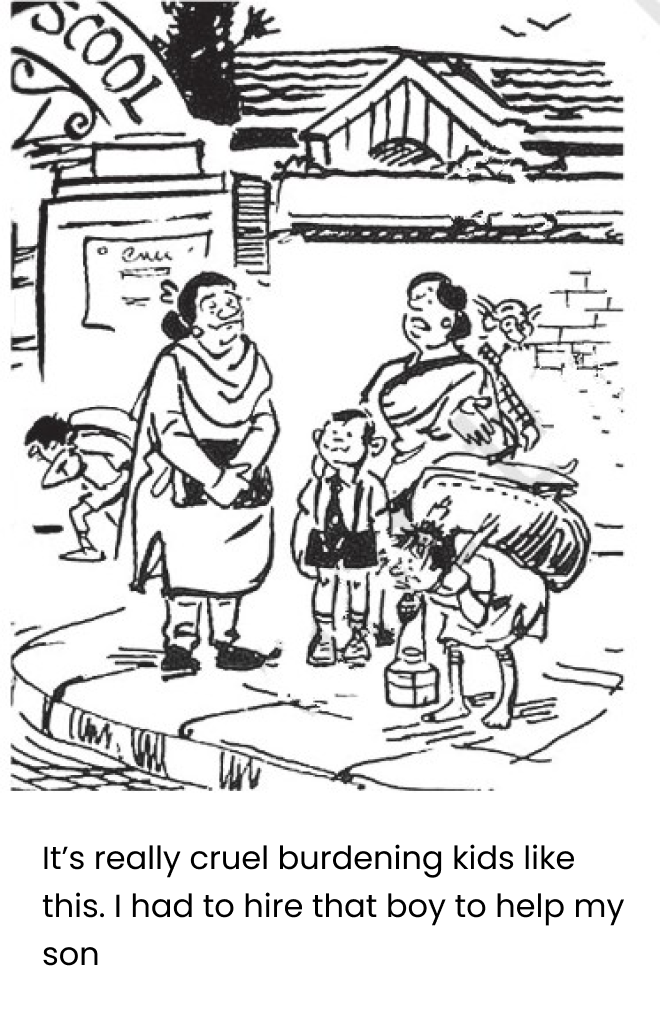Class 8 Social Science Social And Political Life Chapter 8 Questions and Answers - Free PDF Download
FAQs on NCERT Solutions For Class 8 Social Science Social And Political Life Chapter 8 Law And Social Justice - 2025-26
1. What are NCERT Solutions for Class 8 Civics Chapter 8 – Law and Social Justice as per the latest CBSE 2025-26 guidelines?
NCERT Solutions for Class 8 Civics Chapter 8 provide stepwise, expert answers to all textbook questions on ‘Law and Social Justice’, following the CBSE 2025–26 pattern. These solutions help students understand legal rights, government roles, and current socio-economic laws with examples and official reasoning.
2. How do NCERT Solutions help in preparing answers for Civics Class 8 Chapter 8 board questions?
These solutions train students to present structured, concept-based answers as expected by CBSE, covering both direct and analytical questions. They enhance answer-writing skills and ensure every point aligns to the Class 8 NCERT curriculum for Law and Social Justice.
3. Why is law enforcement necessary for social justice as per NCERT Solutions for Class 8 Civics Chapter 8?
Law enforcement is critical to make sure legal provisions to protect workers and citizens are followed in real life. Without proper enforcement, laws exist only on paper and cannot prevent exploitation or unfair practices. As explained in Class 8 Civics, enforcement ensures equal rights and justice for all, especially for vulnerable groups.
4. What is the Minimum Wages Act, and how is it addressed in Class 8 Civics Chapter 8 NCERT Solutions?
The Minimum Wages Act ensures all workers get a legal minimum wage, protecting them from unfairly low salaries. According to NCERT Solutions, this act helps reduce exploitation and supports economic equality by setting fair payment standards across industries.
5. Explain with examples how laws make markets fair, as seen in Class 8 NCERT Solutions for Law and Social Justice.
- Ban on Child Labour: Article 24 prohibits children below 14 from hazardous work, protecting them from exploitation.
- Prohibition of Forced Labour: Article 23 bans trafficking and forced/bonded labour, making exploitation illegal and punishable.
6. What are the impacts of weak enforcement of environmental laws as explained in Class 8 Civics Chapter 8 NCERT Solutions?
If environmental laws are not enforced, industries may pollute air, water, and soil, harming public health and ecosystems. In Class 8 Civics Solutions, it is explained that strict enforcement prevents such damage and supports sustainable development.
7. How do NCERT Solutions for Civics Class 8 Chapter 8 define ‘Law and Social Justice’?
Law and Social Justice means using laws to protect individuals from social and economic exploitation. As per NCERT, these laws are tools to promote fairness, equality, and safety in society, especially for weaker sections.
8. In Class 8 Civics Chapter 8, what steps does the government take to protect workers’ rights?
The government takes steps by:
- Setting and updating minimum wages.
- Regulating working conditions (safety, hours, health).
- Enacting laws to prevent child and forced labour.
- Imposing penalties on violations.
9. Why did the victims of the Bhopal Gas Tragedy struggle to receive justice, according to NCERT Solutions for Class 8 Civics Chapter 8?
The victims struggled because the company delayed accepting responsibility, compensation was inadequate, and courts took years to resolve cases. The NCERT Solutions highlight how weak law enforcement and slow justice delivery hurt affected communities.
10. How are consumer protection laws explained in Law and Social Justice Class 8 NCERT Solutions?
Consumer protection laws prevent unfair trade practices and provide legal recourse for buyers if harmed by faulty products or deceptive services. The NCERT Solutions underscore their importance in establishing marketplace trust and fairness.
11. What new roles has the government taken up in ensuring social justice, per Class 8 Civics Chapter 8 NCERT Solutions?
The government not only sets laws but also actively regulates businesses, ensures public welfare (healthcare, education, sanitation), penalises polluters, and supports sustainable practices, as detailed in the NCERT Solutions for Class 8 Civics.
12. How do the NCERT Solutions for Class 8 Civics Chapter 8 explain the change in attitude towards environmental protection in India?
Earlier, the environment was regarded as ‘free’ to exploit. Over time, after major disasters, public awareness and stricter laws developed. The Solutions explain that the right to a clean environment is now part of the Fundamental Rights, and polluters face penalties.
13. What is the role of judiciary in enforcing laws, as per Class 8 Civics Chapter 8 NCERT Solutions?
The judiciary interprets and applies laws to real-life cases, ensures justice, and holds violators accountable. Courts can mandate compensation, order clean-up, or penalise companies/governments for non-compliance, as discussed in NCERT Solutions.
14. Why do foreign companies prefer to set up production in India, according to NCERT Solutions for Class 8 Civics Chapter 8?
Foreign companies are attracted to India for its lower labour costs, relaxed regulations, and the ability to reduce production expenses. NCERT Solutions explain that such companies often exploit weaker enforcement of labour and environmental laws to maximise profit.
15. How do targeted laws for specific sectors benefit society, as explained in Law and Social Justice Class 8 NCERT Solutions?
Specific laws (like those for labour or consumers) address unique problems of each sector, ensuring comprehensive and relevant protection. NCERT Solutions highlight that this approach provides effective safeguards for all sections of society.


























